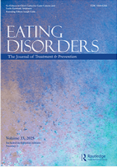
Eating Disorders (EDs) in Mexicans have been associated with an elevated psychiatric comorbidity, highlighting the necessity for a reliable assessment tool. However, previous validations of the Eating Disorders Examination Questionnaire (EDE-Q) in Mexico yielded diverse results regarding its underlying factor structure, leading to uncertainty and complexity in understanding its latent models. This study will evaluate multiple previously proposed EDE-Q models in a sample of 173 patients with EDs undergoing various standard-of-care programs in Monterrey, Mexico. Through Confirmatory Factor Analysis, eight models were scrutinized. Different coefficients were considered to assess the internal consistency of the retained model. Concurrent and convergent validity were assessed using measures of EDs, body image, and clinical parameters. A brief 7-item 3-factor model demonstrated the optimal fit to the data. Internal consistency indices, including Cronbach’s alpha, Omega and Spearman-Brown coefficients, exhibited adequate values. Concurrent and convergent validity were supported by significant associations with measures of ED, body appreciation, body dissatisfaction, clinical impairment, and depression. This study comprehensively assessed multiple EDE-Q models, identifying a brief 7-item 3-factor model, consistent with previous findings among Mexicans. The establishment of a robust EDE-Q model holds promise for enhancing EDs prevention, treatment, and research efforts in Mexico.

